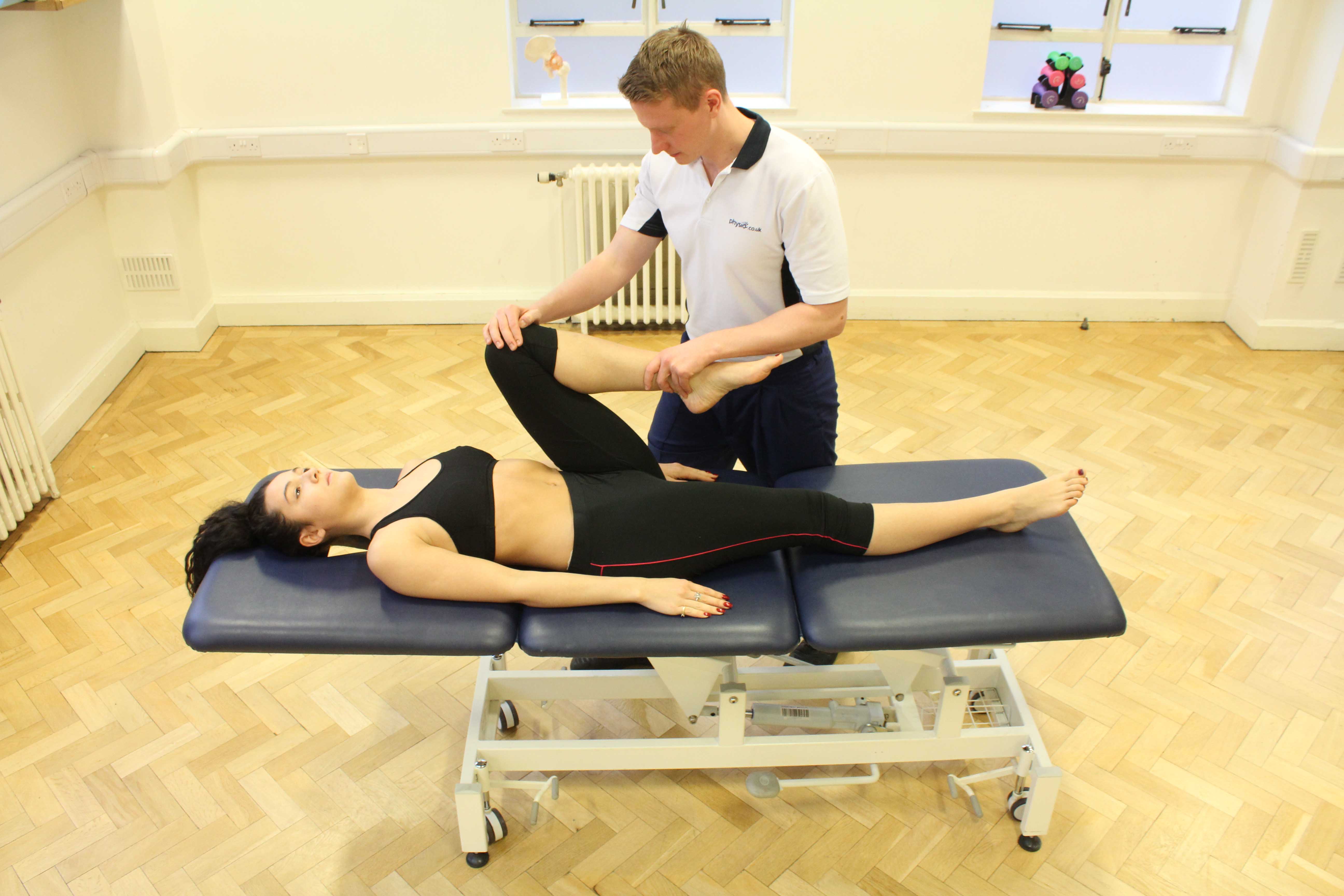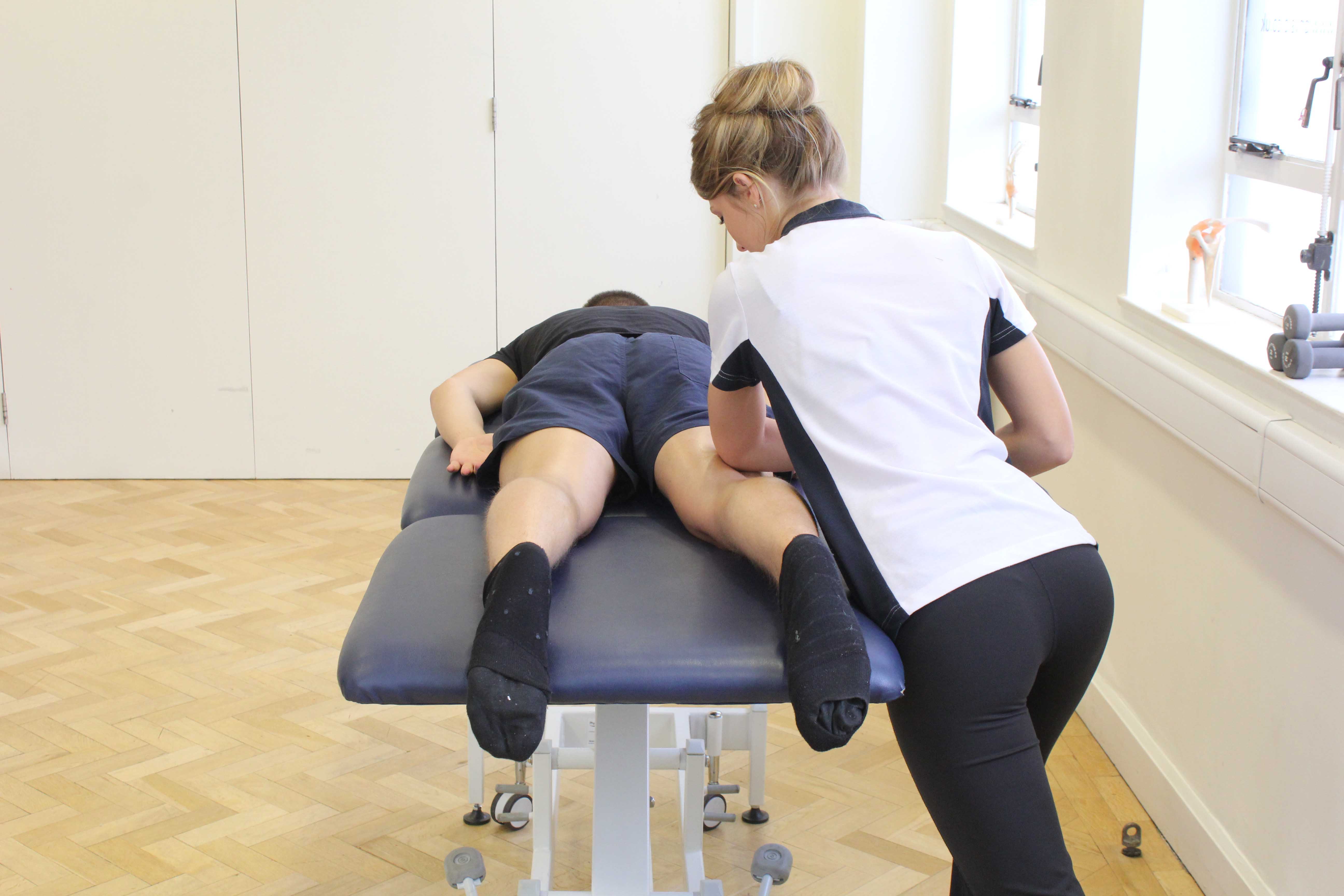What is Polymyalgia?
The word polymyalgia means pain (algia), stiffness, aching and tenderness experienced in many (poly) of the large muscles (my). The primary muscles affected are those located around the limb girdles like the hip and upper leg muscles and the shoulder and upper arm muscles. Unlike fibromyalgia, polymyalgia is a result of inflammation and damage of muscle fibres.
The cause of polymyalgia is not fully known; however, the inflammation may be caused by immune system abnormalities and genetic factors. Polymyalgia may also be triggered by the aging process or can be a result of stress and fatigue.
 Above: Passive stretches and mobilisations of the the knee and hip to relieve pain and stiffness
Above: Passive stretches and mobilisations of the the knee and hip to relieve pain and stiffnessWhat are the symptoms of Polymyalgia?
There are a number of symptoms associated with polymyalgia. Symptoms include:
- Pain, stiffness, aching and tenderness in the large muscles (shoulders, upper arm, hip, upper leg, mainly)
- Inflammation / Swelling of soft tissues and joints
- Tiredness / fatigue
- Depression
- Night sweats
- Insomnia
- Loss of appetite and weight loss
There are a variety of treatments available for polymyalgia. A dose of the steroid prednisolone is commonly prescribed. Physiotherapy is effective in reducing inflammation and pain that are associated with polymyalgia.
 Above: Deep tissue massage to relieve symptoms of pain
Above: Deep tissue massage to relieve symptoms of painWhat physiotherapy treatments will I receive for Polymyalgia?
Specialist physiotherapists at Physio.co.ukwill provide you with a thorough assessment and comprehensive treatment plan that is specific to you. The main aim of physiotherapy for polymyalgia is is to reduce any inflammation, pain and stiffness you are experiencing using a combination of strategies. Other goals include increase energy levels, education to improve lifestyle, pain management and help sort sleep patterns. Physiotherapy may include:
- Pain modalities
- Manual techniques
- Stress management and relaxation techniques
- Massage
- Heat or ice (ice) – for muscle and joint pain
- Electrical stimulation
- Therapeutic ultrasound (– to reduce inflammation
- Hydrotherapy
- Stretching and strengthening exercises for affected areas to prevent deconditioning
- Cardiovascular exercise to improve overall health and fitness levels
- Education on how to make lifestyle changes that may affect your condition – advice on diet, managing sleep and managing rest
- Acupuncture
- Functional activities to help problems associated with daily living
Summary
Polymyalgia rheumatica is a condition that causes muscle pain (myalgia) as a result of inflammation in the large muscles. The inflammation may be caused by immune system abnormalities or genetic factors. Polymyalgia may also be result of stress and fatigue and the ageing process. Polymyalgia is typically experienced in the shoulders, hips, neck upper arms and upper legs. Other symptoms include fatigue, depression and loss of appetite. Symptoms are worse in the morning and improve throughout the day. Physiotherapy is a favoured method to help reduce pain and inflammation associated with polymyalgia. Specialist physiotherapists at Physio.co.uk aim to control pain, improve energy levels and maintain or improve as much mobility and function in the affected areas as possible. Call Physio.co.uk now on 0330 088 7800 for more information or to book an appointment please contact us. You can also book online today!

 0330 088 7800
0330 088 7800


































